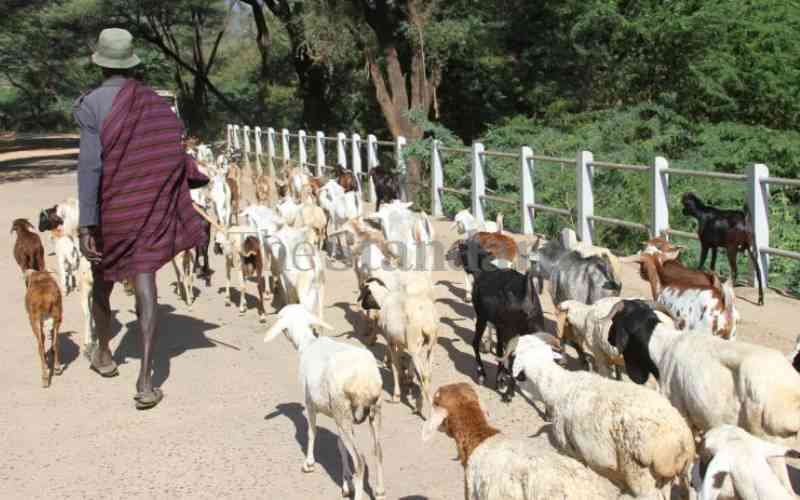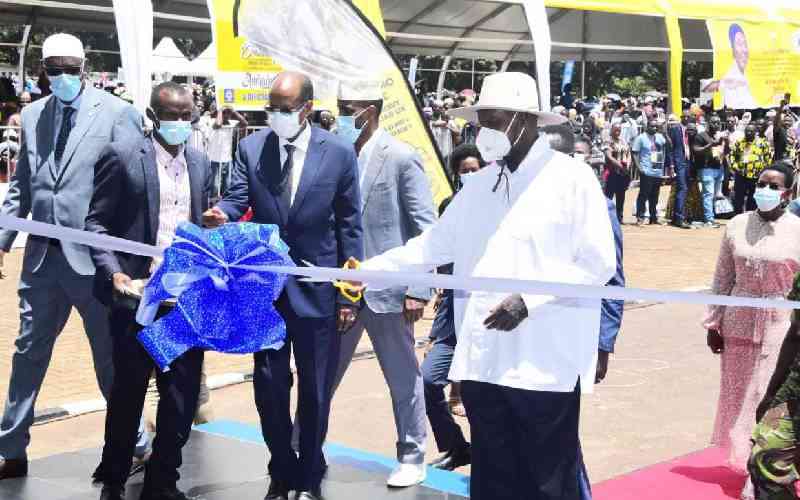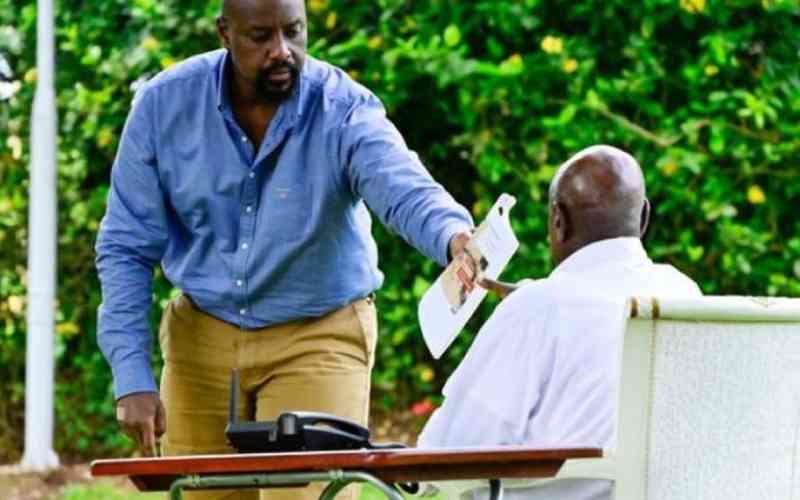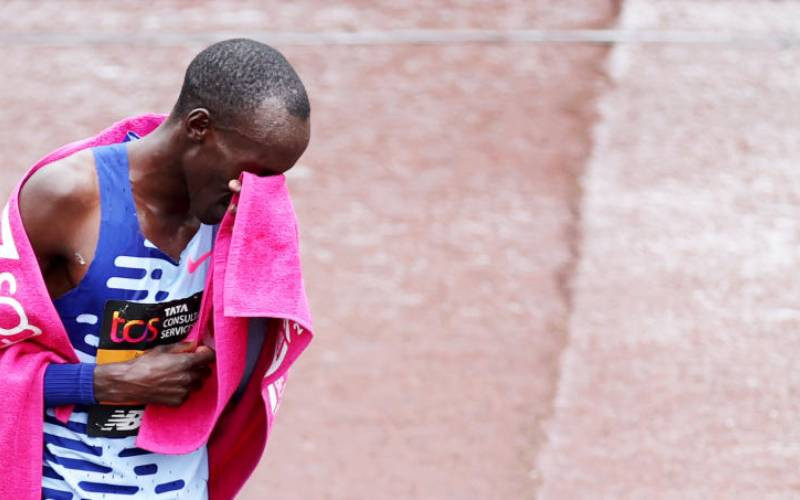 |
|
Maendeleo ya Wanaume chairperson Nderitu Njoka (right) with other activists Monday in Nairobi when they launched Anti-Gay Day. [PHOTO: COLLINS KWEYU/STANDARD] |
By KURIAN MUSA
NAIROBI, KENYA: Anti-gay activists in Nairobi have launched a day to spread gospel against the practice.
The activists led by Maendeleo ya Wanaume chairperson Nderitu Njoka Monday termed homosexuality a foreign culture and noted that they will use Anti-Gay Day, which they will mark every February 24, to curb the habit that is spreading fast.
Mr Njoka said the practice should not be accepted in Kenya or any other African country.
“We will go to learning institutions to preach against gay relations. We will target universities, colleges and high schools,” said Njoka.
The activists asked Parliament to legislate laws that criminalise the practice and bar guest houses or lodgings from accommodating homosexuals.
The day was launched as Uganda’s President Yoweri Museveni signed into law the controversial anti-gay Bill.
Museveni assented to the Bill that has harsh penalties for homosexual sex yesterday, noting it is necessary since ‘arrogant and careless Western groups’ had tried to ‘recruit’ Ugandan children into homosexuality.
The President signed the Bill at his official residence in an event witnessed by Government officials, journalists and a team of Ugandan scientists, whose report, which found that there is no genetic basis for homosexuality, Museveni cited as his reason for backing the Bill.
“We Africans never seek to impose our view on others. If only they could let us alone,” he said, talking of Western pressure not to sign the Bill.
Government officials applauded after he signed the Bill.
The new law calls for first-time offenders to be sentenced to 14 years in jail. It also sets life imprisonment as the maximum penalty for a category of offences called “aggravated homosexuality,” defined as repeated gay sex between consenting adults as well as acts involving a minor, a disabled person or where one partner is infected with HIV.
The Bill is widely popular in Uganda, but international rights groups have condemned it as draconian in a country where homosexuality is already criminalised. Some European countries threatened to cut aid to Uganda if the measure is enacted. US President Barack Obama warned that signing the Bill would ‘complicate’ the country’s relationship with Washington. President Obama has been in the forefront of advocating for African nations to accommodate gay people.
Njoka and his group accused Obama of misleading Africans.
“When he travels across the world, we see him with his wife and children. Why does he not seek a male counterpart,” an activist asked.
Stay informed. Subscribe to our newsletter
DEATH THREATS
Njoka said his organisation has come up with a proposal that will be tabled before the Attorney General to ask Parliament to enact appropriate laws curbing homosexuality.
“The practice is a cult; we shall not accept it even if we continue receiving death threats. I have been threatened but I am not going to back off,” Njoka said. During the launch, Philip Onyango, a young boy confessed he was allegedly lured into homosexuality by men who offered him money.
“They used me. After I tested HIV positive, they dumped me,” Onyango claimed.
Another man, Ezekiel Omukhulu, said during a demonstration at Parliament building that his life was at risk after coming out to condemn members of the gay community.
“From here, the Government should protect men just as they protect women,” he said, adding that when he joined homosexuality, he did not have a job and was so helpless.
“They took advantage of my weakness and need for help. Let the Government help youths like us with Uwezo Fund,” Omukhulu said.
The activists asked African leaders not to be lured by western countries’ donor funds in order to accept homosexuality.
 The Standard Group Plc is a
multi-media organization with investments in media platforms spanning newspaper
print operations, television, radio broadcasting, digital and online services. The
Standard Group is recognized as a leading multi-media house in Kenya with a key
influence in matters of national and international interest.
The Standard Group Plc is a
multi-media organization with investments in media platforms spanning newspaper
print operations, television, radio broadcasting, digital and online services. The
Standard Group is recognized as a leading multi-media house in Kenya with a key
influence in matters of national and international interest.
 The Standard Group Plc is a
multi-media organization with investments in media platforms spanning newspaper
print operations, television, radio broadcasting, digital and online services. The
Standard Group is recognized as a leading multi-media house in Kenya with a key
influence in matters of national and international interest.
The Standard Group Plc is a
multi-media organization with investments in media platforms spanning newspaper
print operations, television, radio broadcasting, digital and online services. The
Standard Group is recognized as a leading multi-media house in Kenya with a key
influence in matters of national and international interest.









